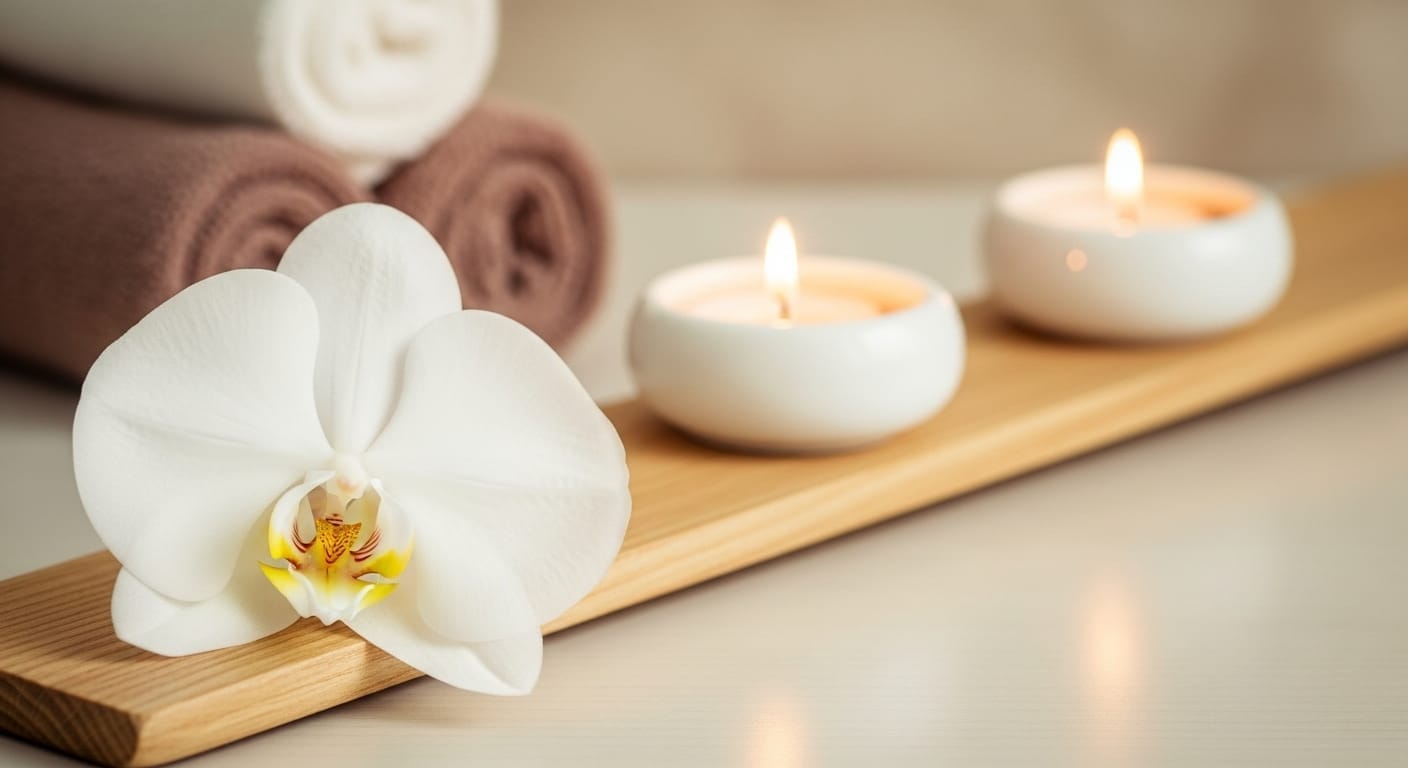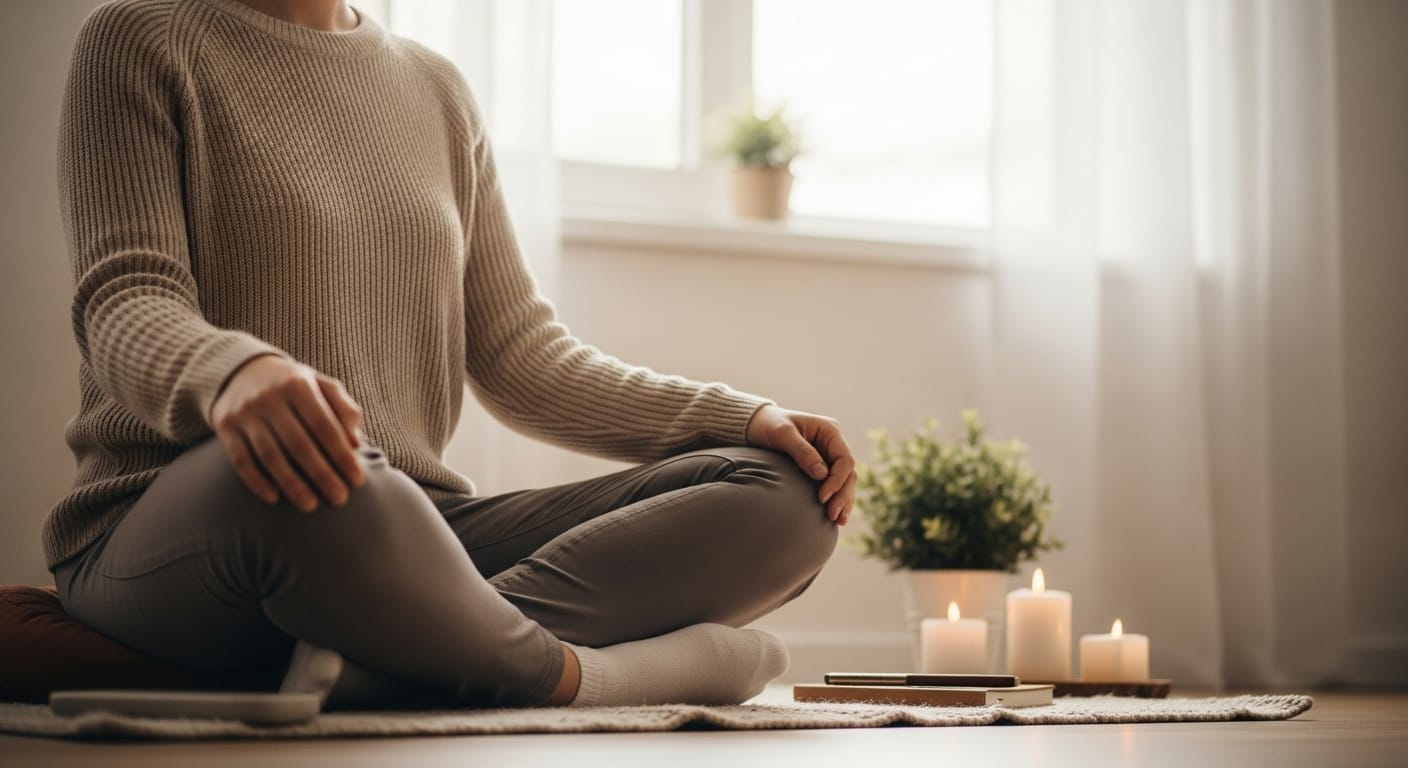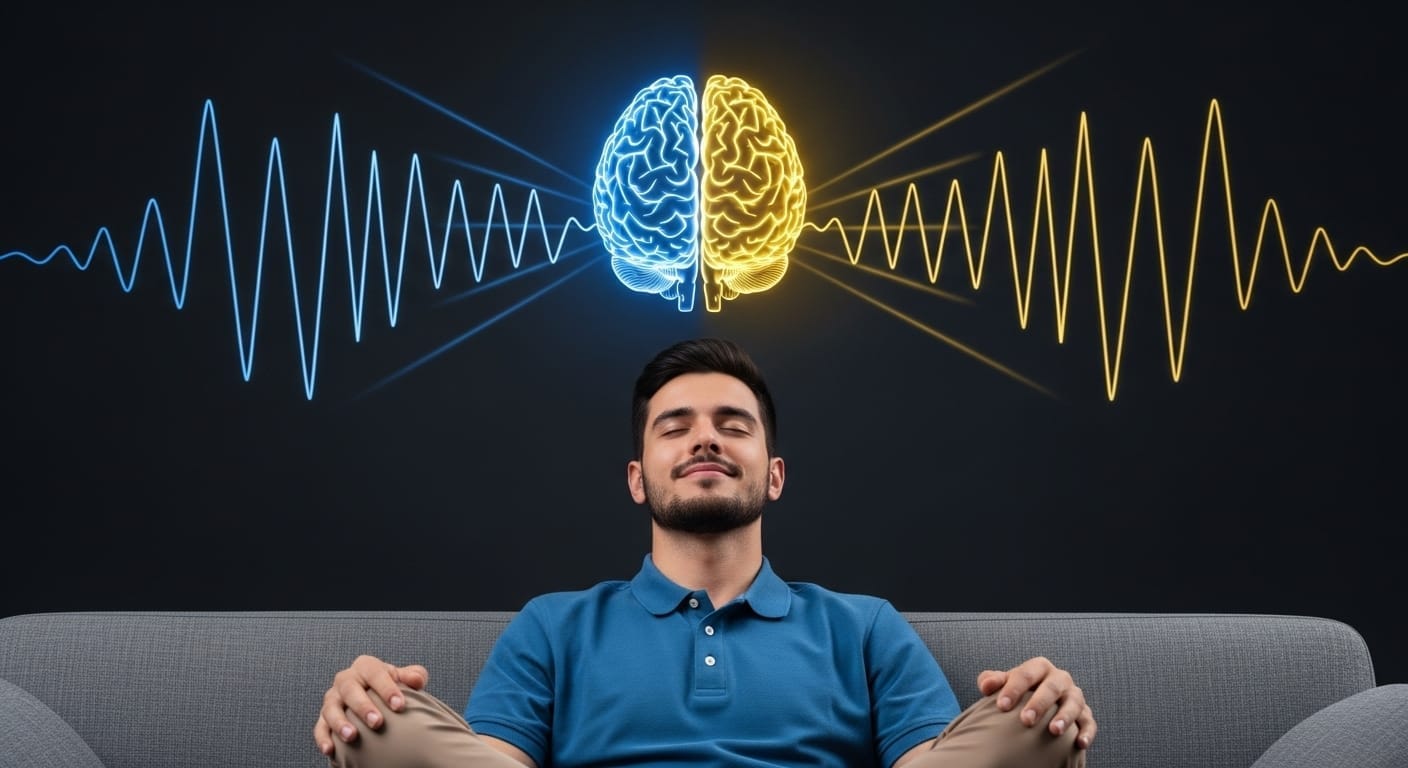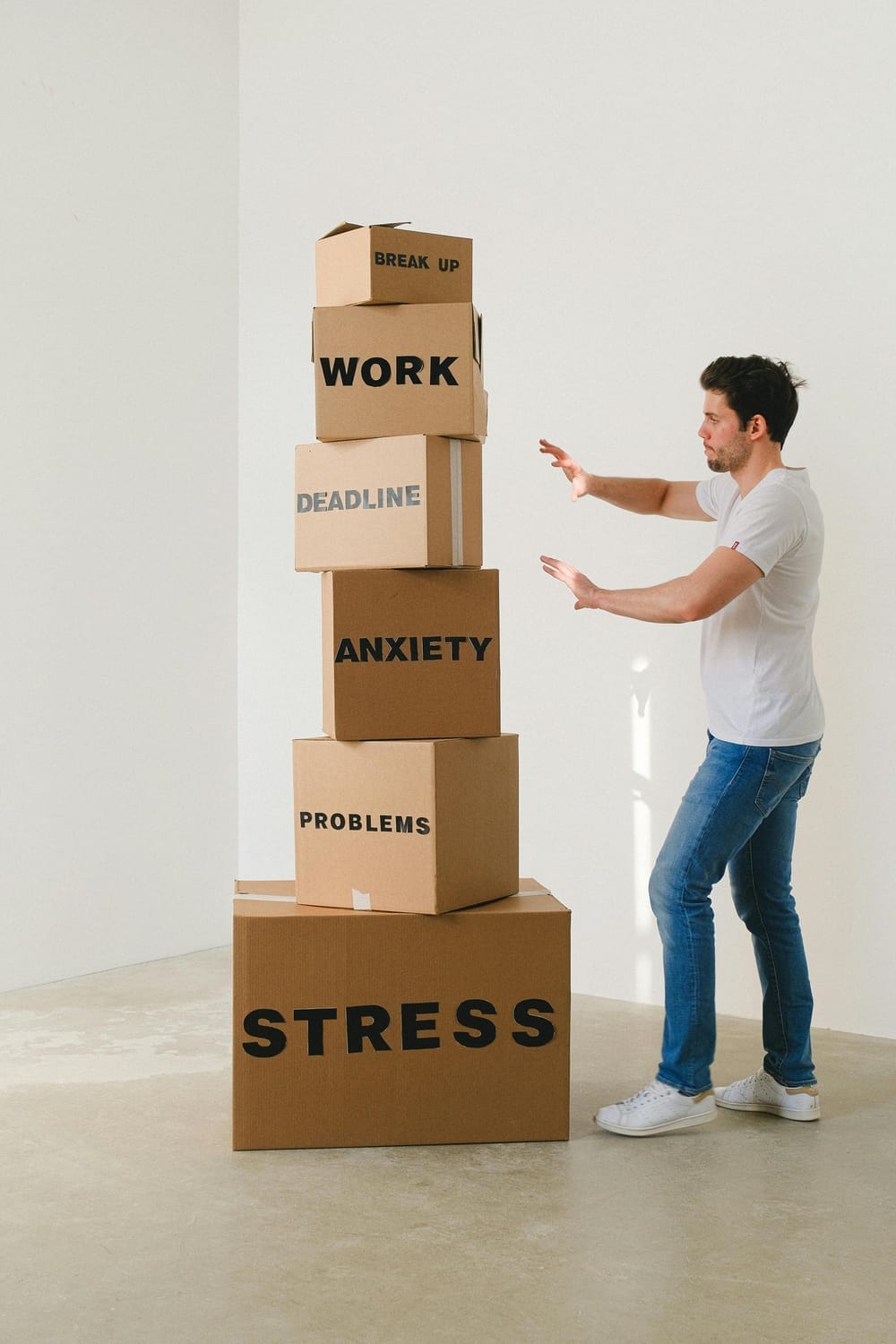

Mindful
Meditation
Unlocked
"Quiet the Mind. Unlock the
Present. Discover Mindfulness
That Transforms."
What is Mindfulness, Meditation & Mindfulness Meditation?
You've probably heard of mindfulness and meditation before. But what do they really mean? In today's fast world, finding calm and clarity is key. Mindfulness meditation combines both, helping you find mental peace.
By practicing mindfulness, you become more aware of your thoughts and feelings. This awareness helps you handle tough situations better. Regular meditation can make you feel calmer, reduce stress, and boost your overall well-being.
Key Takeaways
Mindfulness and meditation improve mental health.
Mindfulness meditation blends both practices.
Regular practice reduces stress and brings calm.
Increased awareness leads to better responses to challenges.
Mindfulness and meditation grow with practice.
The Essence of Mental Wellness Practices

In today's fast world, mental wellness is key for balance and harmony. Adding these practices to your day can greatly improve your well-being. Mindfulness and meditation help clear your mind and build emotional strength.
The Growing Popularity of Mind-Training Techniques
Mind-training techniques are getting more popular for good reason. They help manage stress and boost mental health. By using mindfulness and meditation, you can lower anxiety and sharpen your focus.
Why These Practices Matter in Modern Life
These practices are vital today because they fight off modern stress. They help you control your emotions, think clearer, and find peace. Mindfulness experts say, "They lead to a more compassionate and aware life." This is very important in our busy, overwhelming world.
What is Mindfulness?
Mindfulness is simple yet powerful. It invites you to be fully present in the moment. It's about paying attention to the present without judgment, noticing your thoughts, feelings, and body sensations.
Mindfulness is more than a practice; it's a way of being. It can change how you see the world. It helps reduce stress, improves focus, and boosts well-being.
The Art of Present Moment Awareness
Mindfulness is about being aware of the present moment. It means noticing your experiences without judgment. This helps you understand yourself and the world better.
Techniques like focusing on your breath or body can help. Regular practice brings calm and clarity to your life.
Historical Origins of Mindfulness
Mindfulness comes from ancient Buddhist and Eastern traditions. It was called "sati" in Pali, meaning "to remember" or "to be aware." Over time, it has evolved and become more accessible to everyone.
Knowing mindfulness's history adds depth to its practices. It helps you appreciate the philosophy behind it.
| Aspect | Traditional Mindfulness | Modern Mindfulness |
|---|---|---|
| Roots | Buddhist and Eastern spiritual traditions | Adapted for secular and therapeutic contexts |
| Focus | Spiritual growth and enlightenment | Mental well-being and stress reduction |
| Practice | Meditation and mindfulness in daily activities | Mindfulness exercises, meditation, and mindful movement |
Mindfulness vs. Autopilot Living
Many live on autopilot, going through life without awareness. Mindfulness offers a different path. It encourages being intentional and present in your actions.
Practicing mindfulness helps you break free from autopilot. It makes life more fulfilling and meaningful. You become more in tune with your needs and values.
Mindfulness exercises, like mindful walking or eating, help you appreciate the present moment.
What is Meditation?
You might have heard of meditation but wonder what it is and how it helps. Meditation is a way to train your mind to focus and relax. It makes you more aware of your thoughts and feelings. It's great for clear thinking, less stress, and better well-being.
Defining Meditation as a Mental Practice
Meditation is a mental practice that helps you understand yourself and the world better. It improves your focus and self-awareness. It also makes you more positive. Regular meditation practice can reduce anxiety and help control emotions.
Historical and Cultural Contexts
Meditation comes from ancient cultures and spiritual traditions. It includes Buddhist mindfulness and Transcendental Meditation. Knowing its history and culture can make your practice richer and more meaningful.
Common Types of Meditation Techniques
There are many meditation techniques, each with its own benefits. Here are a few:
Concentration Meditation: Focuses on a single point, like your breath, to clear your mind.
Transcendental Meditation: Uses a mantra to quiet the mind and reach a deeper state.
Concentration Meditation
Concentration meditation focuses on one point, like your breath, to find peace. It helps you concentrate better and lessens mind-wandering.
Transcendental Meditation
Transcendental meditation uses a mantra to quiet the mind and reach a deeper state. It's simple yet effective in reducing stress and promoting calm.
What is Mindfulness, Meditation and Mindfulness Meditation?
Mindfulness and meditation are powerful tools for your mind and emotions. They work together in mindfulness meditation to improve mental clarity and emotional balance. This combined practice helps you find inner peace and awareness.
By exploring mindfulness meditation, you can change your daily life and mental state. It's a unique way to enhance your mental wellness journey.
The Intersection of Two Powerful Practices
Mindfulness meditation combines mindfulness and meditation. It focuses on the present moment without judgment. This mix makes a stronger tool for mental training.
It blends awareness from mindfulness with meditation's focus. This leads to deeper relaxation and mental clarity.
How Mindfulness Meditation Differs from Other Forms
Mindfulness meditation stands out because it focuses on the present. It doesn't use a specific object or mantra like some meditations. Instead, it encourages observing thoughts and feelings without attachment.
This helps you understand yourself better and build emotional strength. It promotes well-being.
The Synergistic Relationship Between Components
Mindfulness and meditation together in mindfulness meditation create a powerful effect. Mindfulness makes you more aware of the present. Meditation helps you focus and relax deeper.
This combination brings calm and clarity, boosting your mental health and well-being. Practicing mindfulness meditation lets you enjoy the benefits of both practices in a unified way.
The Science Behind These Practices
Mindfulness and meditation change our brains and bodies in many ways. Learning about these changes can make you appreciate these practices more.
Neurological Changes and Brain Benefits
Mindfulness and meditation change the brain in good ways. Scientists use special tools to study these changes.
Brain Imaging Studies
Studies with fMRI and EEG show how these practices change the brain. They find more grey matter in important areas.
Cognitive Function Improvements
These practices also make our brains work better. They help us focus, remember, and solve problems. This makes us mentally sharper.
Research-Backed Evidence for Effectiveness
Many studies prove mindfulness and meditation help our minds and bodies. They reduce stress and anxiety, and improve sleep and mood.
Reduced Stress: Lower cortisol levels and improved stress resilience.
Improved Mental Health: Decreased symptoms of anxiety and depression.
Enhanced Cognitive Function: Better focus, memory, and problem-solving skills.
By adding mindfulness and meditation to your life, you can see big improvements in your health.
Benefits of Mindfulness Practice
Mindfulness can improve your mental, emotional, and physical health. It helps you stay aware of the present moment. This makes it easier to handle life's challenges.
Mental Health Improvements
Mindfulness can help with anxiety and depression. It teaches you to be kinder to your thoughts and feelings. Mindfulness for beginners starts with simple exercises like focusing on your breath or body.
Enhanced Focus and Cognitive Function
Mindfulness boosts your focus and mental clarity. It trains your mind to stay present. This can make you more productive. Mindfulness techniques like body scan meditation are great for this.
Improved Relationships and Communication
Mindfulness also improves your relationships and how you communicate. Being present in conversations helps you connect better with others. This leads to more harmonious personal and professional relationships.

| Benefits | Description | Impact |
|---|---|---|
| Mental Health | Reduces symptoms of anxiety and depression | Improved well-being |
| Cognitive Function | Improves attention and concentration | Enhanced productivity |
| Relationships | Fosters deeper connections and effective communication | More harmonious relationships |
Benefits of Traditional Meditation
Traditional meditation has been around for centuries. It offers many benefits for both body and mind. Adding meditation to your daily routine can greatly improve your well-being.
Reducing Stress and Enhancing Emotional Regulation
One big advantage of traditional meditation is its stress-reducing power. It helps calm the mind, lowering anxiety and stress. This leads to better emotional stability and resilience.
Lowered cortisol levels
Improved mood
Enhanced emotional awareness
Physical Health Benefits
Traditional meditation also boosts physical health. Studies show it can lower blood pressure, reduce chronic pain, and strengthen the immune system. Meditation reduces stress and promotes relaxation, improving overall physical health.
| Physical Health Benefit | Description |
|---|---|
| Lower Blood Pressure | Regular meditation helps reduce hypertension, contributing to heart health. |
| Reduced Chronic Pain | Meditation can decrease the perception of pain, improving quality of life. |
| Boosted Immune System | By reducing stress, meditation can enhance immune function. |
Spiritual and Personal Growth
Lastly, traditional meditation promotes spiritual and personal growth. It encourages self-reflection, mindfulness, and a deeper connection to oneself and the world. This can make life more fulfilling and meaningful.
Understanding and embracing traditional meditation's benefits can start a journey of self-discovery and holistic well-being.
Benefits of Mindfulness Meditation
Mindfulness meditation is getting more attention for its wide range of benefits. It helps reduce stress and boosts brain function. This practice offers a complete way to improve mental health.
Synergistic Advantages
Mindfulness meditation combines the best of mindfulness and meditation. It makes you better at handling emotions, focusing, and understanding yourself. The main benefits are:
Enhanced emotional regulation: It helps you manage your feelings better.
Improved cognitive function: It makes your attention and concentration stronger.
Increased self-awareness: It helps you know yourself better.
Unique Benefits of the Integrated Approach
The way mindfulness meditation combines both practices has special benefits. These include:
Better stress management: It helps you deal with stress more effectively.
Enhanced resilience: It makes you stronger against challenges.
Applications in Therapy and Treatment
Mindfulness meditation is used a lot in therapy. It makes traditional treatments better.
MBSR and MBCT Programs
Mindfulness-Based Stress Reduction (MBSR) and Mindfulness-Based Cognitive Therapy (MBCT) are well-known programs. They use mindfulness meditation to reduce stress and stop depression from coming back.
Clinical Applications
In clinics, mindfulness meditation helps with anxiety, chronic pain, and addiction. Many studies support its effectiveness in these areas.
Getting Started with Mindfulness
Starting your mindfulness practice is a simple yet profound step towards better mental health. Mindfulness means being present in the moment. It involves observing your thoughts and feelings without judgment.
It can help reduce stress, improve focus, and bring a sense of calm.
Simple Mindfulness Exercises for Beginners
Mindfulness is for everyone, and you can start right away. Simple exercises can help you cultivate mindfulness. They can fit easily into your daily routine.
The Five Senses Exercise
The five senses exercise is a great way to practice mindfulness. Spend a few minutes noticing the sensations around you. Listen to sounds, feel textures, notice smells, taste food mindfully, and observe your surroundings.
This exercise helps you stay present in the moment.
Mindful Breathing Techniques
Mindful breathing is a key exercise. Focus on your breath, feeling the air move in and out of your nostrils. If your mind wanders, gently bring it back to your breath.
Regular mindful breathing can lower anxiety and boost concentration.
Incorporating Mindfulness into Daily Activities
Mindfulness isn't just for formal exercises. You can practice it in your daily life. Eat mindfully, savoring each bite. Listen to others without interrupting.
Take a mindful walk, focusing on your feet and surroundings. This way, you can make everyday moments mindful.

Beginning Your Meditation Journey
Starting your meditation journey opens up a world of techniques and resources. These help you cultivate mindfulness and inner peace. Meditation can make your life more balanced and fulfilling.
Creating a Meditation Space
To meditate well, you need a good environment. Choose a quiet, comfy spot in your home. Use a cushion or chair that supports your posture. Keep the area tidy and free from distractions.
Basic Meditation Techniques for Newcomers
Beginners should start with simple techniques. Focus on your breath, feeling it as it moves in and out of your nostrils. If your mind drifts, gently bring it back to your breath without judging.
You can also try body scan meditation. This involves focusing on different body parts, releasing tension as you breathe out.
Establishing a Consistent Practice
Being consistent is key to developing a meditation habit. Begin with short sessions, like 5-10 minutes. As you get more comfortable, you can increase the time. Meditate at the same time each day to make it a routine.
Overcoming Common Obstacles
One big challenge for beginners is a restless mind. Don't get discouraged if your mind wanders. Instead, acknowledge the thoughts and gently refocus your attention.
Using Apps and Guided Meditations
Meditation apps and guided meditations are very helpful for beginners. Apps like Headspace and Calm offer structured programs. They help you stay on track and improve your skills.
Practicing Mindfulness Meditation
Mindfulness meditation helps you become more aware. It combines mindfulness and meditation to improve your mental clarity and reduce stress.
A Step-by-Step Guide
To start mindfulness meditation, follow these steps:
1. Find a quiet, comfy spot to sit, on a chair or on the floor.
2. Close your eyes and breathe deeply to relax.
3. Focus on your breath, feeling the air move in and out of your nose.
4. If your mind wanders, gently bring it back to your breath without judging.
5. Begin with short sessions, like 5-10 minutes, and increase as you get more comfortable.
As you keep practicing, you might face challenges. Be patient and understanding with yourself.
Common Challenges and Solutions
Here are some common issues:
Mind wandering: Acknowledge the thought and return to your breath.
Physical discomfort: Adjust your position or take a break if needed.
Lack of motivation: Remember the benefits and start small.
Mindfulness expert Jon Kabat-Zinn says, "The best way to take care of the future is to take care of the present moment."
Jon Kabat-Zinn
Progressing in Your Practice
As you get better at mindfulness meditation, try new techniques or join a group. Being consistent is important, so meditate at the same time every day.
| Technique | Description | Benefits |
|---|---|---|
| Body Scan | Lie down or sit comfortably, focusing on each body part. | Relaxation and release of tension. |
| Loving-Kindness Meditation | Focus on sending kindness to yourself and others. | More compassion and empathy. |
| Walking Meditation | Notice the sensation of each step while walking. | Brings mindfulness into daily life. |
By adding mindfulness meditation to your daily routine, you'll see big benefits for your mental and emotional health.
Conclusion: Integrating These Practices into Your Life
Mindfulness is key in today's fast world. You've learned about mindfulness, meditation, and mindfulness meditation. These tools can greatly improve your well-being.
Mindfulness practices boost both mental and physical health. Adding mindfulness to your day can lower stress, improve focus, and better manage emotions.
Keep going on your mindfulness journey. Start small and be patient as you grow your skills. Consistency is the key.
Embracing mindfulness daily can bring calm, clarity, and better well-being into your life.
FAQ
What is mindfulness, and how does it differ from meditation?
Mindfulness is about being fully present in the moment. Meditation is a broader term for techniques to calm the mind. Mindfulness meditation combines both, focusing on being aware of now.
What are the benefits of practicing mindfulness and meditation?
Mindfulness and meditation can reduce stress and improve focus. They also help with emotional control. Regular practice boosts overall well-being and relationships.
How do I get started with mindfulness exercises for beginners?
Start with simple exercises like focusing on your breath or body scan. Try to be present in daily activities like eating or walking.
What are some common types of meditation techniques?
There are many meditation types, like concentration, transcendental, and loving-kindness. Try different ones to see what suits you best.
How can mindfulness meditation be applied in therapy and treatment?
Mindfulness meditation is used in therapy for stress and depression. Programs like MBSR and MBCT show it's effective.
What are some tips for establishing a consistent meditation practice?
Create a meditation space and set a regular time. Use guided meditations or apps. Be patient, as it takes time to build a habit.
How can I overcome common obstacles in mindfulness and meditation practice?
Overcome challenges by being kind to yourself and using resources. Make mindfulness a daily habit by incorporating it into your routine.
What is the significance of mindfulness and meditation in modern life?
Mindfulness and meditation are key for mental health and stress relief. They help build resilience and improve life quality in today's fast-paced world
Stay Mindful
Get updates & free mental wellness tips.
Hi 👋
Hope you are doing okay, Just want to let you know,
Some links on this site are affiliate links. We may earn a small commission if you make a purchase — at no extra cost to you.
Understand Your Mind.
Try our quick quizzes to learn more about your mental health.
Check these out









